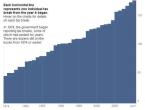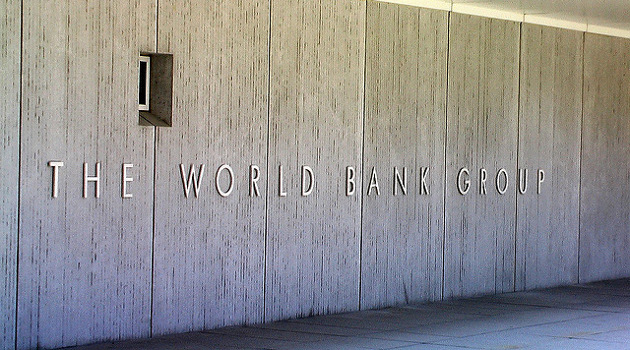Back in 2014, I shared a World Bank study that measured how tax complexity facilitates more corruption by government officials.
 Not that anyone should have been surprised. Complex tax codes enable politicians to extort bribes when writing the law (a problem that definitely exists in Washington) and they makes it possible for bureaucrats to extort bribes when administering the system.
Not that anyone should have been surprised. Complex tax codes enable politicians to extort bribes when writing the law (a problem that definitely exists in Washington) and they makes it possible for bureaucrats to extort bribes when administering the system.
Now the World Bank has a new study showing how a larger regulatory burden enables and facilitates corruption.
The two authors, Mohammad Amin and Yew Chong Soh, wanted to use better types of data to get an accurate assessment of the problem.
Business regulations often create opportunities for public officials to collect bribes… If true, this simple insight provides a practical and powerful way for deregulation to combat corruption and its many harmful effects on the economy. …Regulation is often measured by laws on the books rather than the actual regulatory burden on the firms even though it is the latter that is the primary determinant of corruption…
The present paper attempts to fill this gap in the literature by using firm-level survey data on the actual corruption and regulatory burden experienced by the firms. …the public choice theory, stresses that regulation is intended to create rents to be distributed between the industry incumbents and the corrupt public officials. In some cases, the main beneficiary of regulation is the industry (regulatory capture view) while in others, it is the politicians and public officials (tollbooth view). …The present paper contributes to the…literature in several ways. …most previous studies have used perceived corruption indices…we depart from the literature by using firms’ experience with corruption instead. … for regulation, we use the actual regulatory burden experienced by the firms rather than rules on the books. This is an important departure from the literature.
For those not familiar with the term, “public choice” refers to research on the self-interested behavior of people in government.
Anyhow, prior research already showed that red tape gave politicians and bureaucrats the ability to extort money from the private economy.
…several studies analyze the possible effects of regulation on corruption. Using macro-level data for a cross-section of 85 countries in 1999, Djankov et al. (2002) look at the relationship between entry regulations and the level of corruption. …Consistent with the tollbooth view, the study finds strong evidence of higher corruption associated with heavier regulation of businesses. Using data from three worldwide firm surveys, Kaufmann and Wei (2000) confirm that when bribe-extracting bureaucrats can endogenously choose regulatory burden and delay, the effective (not just nominal) red tape and bribery can be positively correlated across firms.
The results in the new World Bank study build on the earlier research and confirm (as I noted in a video more than 10 years ago) more power for government means more corruption by government.
Our results show a large positive impact of the regulatory burden on the level of overall corruption as well as petty corruption. For the baseline specification, the overall bribery rate (bribes as percentage of firms’ annual sales) rises by about 0.03 percentage point for each percentage point increase in the regulatory burden. …The results show that irrespective of the set of controls, there is a large positive relationship between Overall Corruption and Time Tax… That is, for each percentage point increase in the regulatory burden, the overall bribe rate increases by 0.028 percentage point. Alternatively, an increase in regulatory burden from its minimum to maximum level leads to 2.8 percentage points increase in the level of overall corruption. This is a large increase given that the mean level of overall corruption equals about 1.1 percent.
By the way, “time tax” is defined as “the average of the percentage of senior management’s time spent in dealing with business regulations”
Here’s a graphic from the study for those of you who like digging into the empirical details.
P.S. The World Bank also released a study last year showing how more regulation reduces business productivity. Needless to say, that ultimately translates into lower wages for workers.
P.P.S. I’ve been asked why the World Bank seems friendlier to good policy than either the International Monetary Fund or Organization for Economic Cooperation and Development. I point out that it’s not uncommon to see quality work from the professional economists at all international bureaucracies, even the IMF and OECD. But the World Bank seems to have a higher percentage of quality research. My guess it that this is a result of its focus on poverty alleviation.


